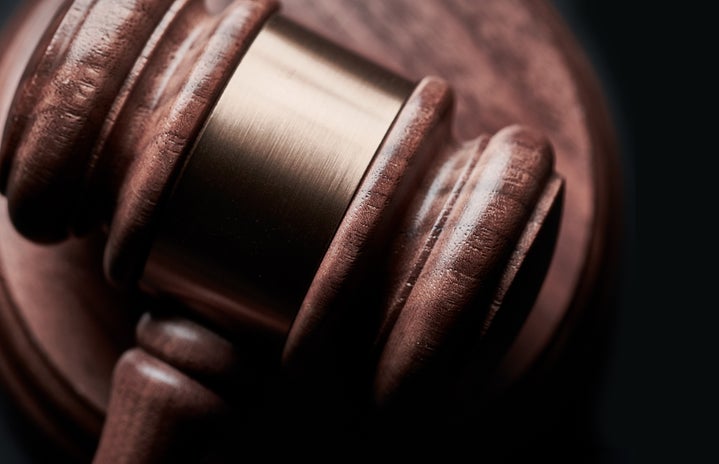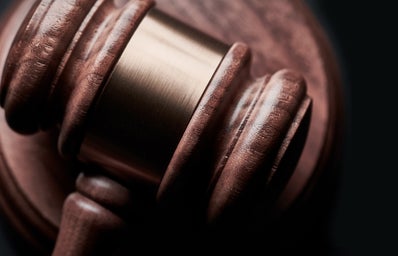On August 25, 2020, a protest was occurring in Kenosha, Wisconsin over the shooting of Jacob Blake, a 29-year-old black man.
Kyle Rittenhouse, a 17-year-old Illinois resident, drove from Illinois to Kenosha to attend the protest of Jacob Blake’s shooting with an AR-15 style rifle in hand and shot three men. Mr. Rosenbaum, a homeless man whose only means of defense was a plastic bag that he threw at Rittenhouse, and Mr. Huber, whose “weapon” was just a skateboard, were shot and killed by Rittenhouse. Mr. Grosskreutz, a third man shot by the teenage boy, had a handgun, but visibly had his hands up in the air before he was shot and seriously injured. While the details of why Rittenhouse fired his weapon and what took place before the gunshots are being hashed out in court (check below for an update after the verdict of the trial), two men still lost their lives that night in their own state, their own hometown, at the hands of a boy from a state over and an assault rifle.
Read more about the victims here
The Trial
Kyle Rittenhouse is now facing six criminal charges in Wisconsin: first-degree intentional homicide, first-degree reckless homicide, first-degree attempted intentional homicide, two counts of reckless endangerment, and a lesser charge of possession of a dangerous weapon by a person under 18. To all of these charges, he has pleaded not guilty, while facing life in prison. Experts agree the case is becoming an increasingly close call. Videos of Rittenhouse being threatened the night of the shooting and sobbing on the defense stand are becoming viral, and, horrifyingly, 500 national guards are on standby to be deployed to Kenosha upon the verdict of the trial. Kenosha, a town that has shown it is defenseless in the face of one assault weapon, let alone 500.
The judge of this case is Bruce Schroeder, the longest-serving state trial court judge in Wisconsin. He too has been thrust into the spotlight after some incredibly controversial decisions. He has agreed to let the defense attorneys argue for lesser versions of several counts that Rittenhouse is being charged for, and is inserting himself into the case by explaining why he is overruling or sustaining objections, a style of judging uncommon in courts, especially with a jury case as high-profile as this one.
The most controversial decision Schroeder has made, however, is one to disallow the word “victim” in the courtroom, and instead suggest that Huber, Rosenbaum, and Grosskreutz should be described as “looters” or “rioters.” According to Schroeder, “victim” is too loaded of a word, but describing the men as looters and rioters, when in fact there was no way Rittenhouse would have known if they were participating in violent protest, is not likely to sway jury opinion.
To begin dissecting why this decision of what language should be allowed in the courtroom is so unjust, one just has to look at this quote from NPR: “Any verdict likely will come down to what Rittenhouse was thinking at the moment of the shooting.” This manner of justice, which decides the fate of someone who has taken the lives of others by analyzing their thoughts when committing the act, is nothing new in our criminal justice system. In fact, it’s been used for years in deciding if a person should be punished for killing someone, usually in cases that are high in racial tension.
The “reasonable person” test analyzes the actions of a defendant in a way almost meant to provide sympathy for their acts of violence by asking, “What would a reasonable person have done in this same situation?” The test used in criminal courts was first developed in 1594 and has developed since into “an insidious form of injustice” in cases involving people of color and other marginalized groups (to learn more about the “reasonable person” test in a way that avoids excessive legal jargon, check out the Spotify podcast I linked below). Although the men who died in Kenosha were white, the reasons surrounding their deaths are surrounded by race and injustice, as the murders happened at a protest against the shooting of a black man, and the white man who showed up to a protest against racial injustice with an assault rifle is now being protected in the courts.
By calling Huber, Rosenbaum, and Grosskreutz “rioters” instead of “victims,” Schroeder and the defense attorneys are swinging the reasonable person test in favor of Rittenhouse. Even if not explicitly stated, the jury is thus put in Rittenhouse’s shoes as a man who is defending himself against looters and violent protesters. My problem with this test is as such: while the jury is deciding what a reasonable man would do in Kyle Rittenhouse’s case, who is deciding what a reasonable person would do when seeing a strange man show his assault rifle off at a protest known to bring violence out in people across the country? What would a reasonable person do after seeing this man shoot someone? Could he try to protect his community and family by approaching the man? While these questions are biased, so are inherently the questions asked when the jury put in Kyle Rittenhouse’s place. To the courts, no matter a case of police brutality or white supremacy masked as “self-defense,” it always seems to matter most what the white person in power was thinking, and what he decided “justice” was in terms of who ends up dead, and who survives, at his hand.
Thus, when the whole world is watching Rittenhouse’s trial, shocked at how sympathetically he is being treated while facing three charges of first-degree homicide, understand that this is not the only time the justice system has done such injustice to victims of white supremacists through simple language change and use in the courtroom. The United States has a long history of protecting the violent white man in racially charged cases, and although this may be one of the highest-profile cases, it was not the first, and it will likely not be the last.
UPDATE: As of November 19, 2021, Kyle Rittenhouse has been found not guilty on all counts by the jury, and the verdict cannot be appealed. While leaders across the nation and the prosecutors of the case urge the public to respond to the verdict in a civil and respectful manner, the communities of Kenosha, the state of Wisconsin, and the nation are already crying out for Rittenhouse’s victims, who did not have the privilege of defending themselves in court.
As we wait to watch the aftermath of the verdict unfold, one can’t help but wonder what the outcome of the case might have been with a less opinionated judge, or with the word “victim” allowed in the trial, or with a judicial system that doesn’t have a strong history of protecting the white rather than the innocent. However, that is not a world we live in, and the racist practices in our courts have let another “reasonable” white man walk free.
To learn more about the Kyle Rittenhouse case, as well as gain access to means of contacting officials to voice your concerns on the case, check out this article.
If you are interested in taking action in protecting Wisconsin protesters as the days after the jury’s decision unfold, check out petitions like this one.


